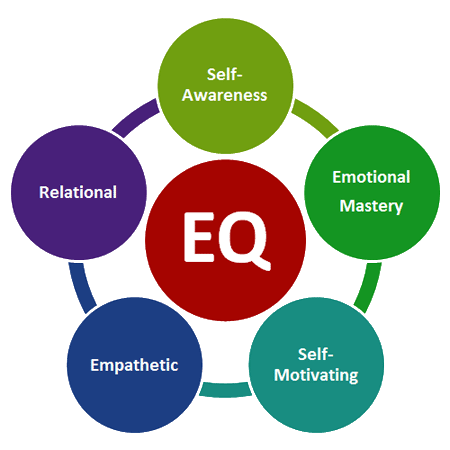In the original Star Trek television series, the emotionally attuned Dr. McCoy frequently locked horns with the uber-rational Mr. Spock. McCoy wanted to factor in the human side of the equation when making crucial decisions and found Spock’s computer-like judgments harsh. In turn, Spock feared that the good doctor’s emotional sensibilities would be his undoing.
Whether we deem them valuable or not, emotions are central to how we navigate circumstances that are too important to leave to intellect alone. They sound the alarm in the face of danger and prompt immediate action. They fuel our drive to set and pursue goals. They create powerful memory imprints that guide future decisions; they streamline options and highlight attractive choices. And they give us the means to bond with a mate, build a family, and live harmoniously in community.
At a time when the Mr. Spocks of this world were regarded in highest esteem, Daniel Goleman published his groundbreaking book, Emotional Intelligence: Why It Can Matter More Than IQ. He argued that one’s genetically-endowed intellect represented perhaps 20% of the factors that determine life success. Luck, breeding, and confidence add to the mix. But it’s the emotionally adept people who truly have the edge.
 Psychologists Peter Salovey and John Meyer define emotional intelligence as:
Psychologists Peter Salovey and John Meyer define emotional intelligence as:
- Being in touch with one’s own emotions as they happen without being consumed by them or caught up in judgment about them
- Exercising mastery over our emotions – not by controlling when we have them or what they’ll be, but by determining how long they will hold sway
- Motivating oneself based on a belief in one’s ability to meet challenges and finding solutions as they arise; delaying gratification, as appropriate
- Recognizing emotions in others and providing empathetic responses
- Managing relationships effectively – e.g., putting others at ease, shaping encounters, wielding influence, mobilizing and inspiring others, forging intimacy
Emotional intelligence gives us the capacity to take full advantage of our cognitive abilities, powers of concentration, and other talents. We lose ourselves in the moment without the burden of self-consciousness or emotional static. In fact, this ability to enter “flow” is a prerequisite for mastery in one’s craft.
Anger, anxiety, and depression diminish our capacity to learn and sabotage academic performance. Anger is a seductive emotion given its penchant toward self-righteousness and revenge. Venting amps up the brain’s arousal; successive anger-provoking thoughts add fuel to the fire. Chronic worry – i.e., rehearsing what might go wrong – creates a low level of anxiety that becomes impervious to reason. It’s not conducive to generating novel solutions or fresh ideas. Grief and bereavement for losses is healthy; they go awry when morphed into chronic depression. Options to address these unhelpful emotions:
- Cognitive reframing – i.e., intentionally narrating circumstances in a positive light
- Distracting oneself with a pleasurable, non-addictive activity
- Exercising to release endorphins
- Engineering a success (self-confidence booster), no matter how small
- Laughing, which makes folks think broadly and associate freely.
(Note: Good moods bias thinking in a positive direction and help lay down congenial memories.)
Empathy is a key social ability. It equips the individual to understand other people’s feelings, to view the world from their vantage-point, and to respect differences in opinions and sensibilities. Strong relationship skills also include:
- Being a good listener and asking relevant questions to draw others out
- Distinguishing between what someone says and does from one’s own judgments and reactions about them
- Being appropriately assertive rather than angry or passive
- Mastering the arts of cooperation, conflict resolution, and compromise
- Organizing groups into effective teams; exercising leadership
Organizational superstars ply their social skills to establish dense networks of relationships on multiple fronts. The quantity and quality of relationships help them buffer stress. Emotional support confers healing power in times of trouble. Strong social connections tend to be associated with high functioning immune response.
Family life is our first school for emotional learning. Parents who possess a solid understanding of emotional intelligence have an advantage in shaping their children’s future. Seven key ingredients impact a child’s capacity to learn: confidence, curiosity, intentionality, self-control, relatedness, capacity to communicate, and cooperativeness.
For those whose childhoods fell short of textbook grooming in emotional intelligence, there are evidenced-based programs to cultivate emotional intelligence. They cover emotional skills (e.g., identifying, assessing, and managing feelings), cognitive skills (e.g., reading and interpreting social cues), and behavioral skills (e.g., sending relationship-forwarding signals to others via verbal and non-verbal cues).